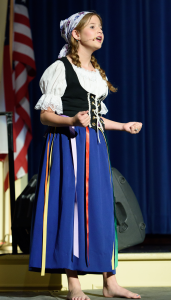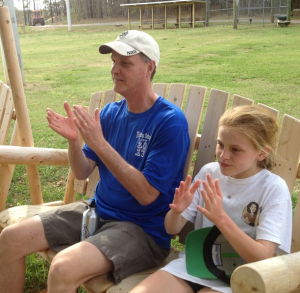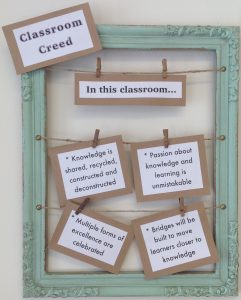“Somewhere, I suspect, down in the elementary school, probably in the fifth and sixth grades, a subtle shift occurs. The curriculum–subjects, topics, textbooks, workbooks, and the rest–comes between the teacher and student” (Goodland, 1984, p. 80).
I found this quote in Michael Fullan’s The New Meaning of Educational Change, and it stopped me in my tracks. Now, the whole book is about how hard it is to make changes in education, so it’s not a really uplifting read, but this quote made me feel like my guts were being ripped from my torso.
It makes sense for high school; I certainly had teachers who placed quadratic equations or the First Constitutional Congress between us. But, curriculum gets between teacher and student as early as elementary school? As early as fifth or sixth grade? Those are the grades I have been a teacher in for more than half my career! That’s horrifying!
And, I believe I can safely say that this is not happening at Trinity School.
At Trinity School, we share the out of doors with our students. See Why Outdoor Education? and Keep in Rhythm
At Trinity School we value the arts and our students’ efforts and accomplishments in them. See The Art of Badging and A Song in the Spotlight
At Trinity School we encourage students to take risks and build agency. See Just Ask… and Modeling Improves Learning
At Trinity School we know students by name and as individuals, and we relish watching them flourish. See What’s in a name? and Flourishing: A Trinity Journey
At Trinity School we push our students to discover new worlds- in between pages or across borders. See Just a taste… and La Grafiti de Colombia
These Flourish posts are just a sampling from the 5th and 6th Grade. The examples would go on for days if we looked at #TrinityLearns on Twitter and the tremendous work that is going on in every grade level.
I know that curriculum does not get between Trinity students and Trinity teachers, not in fifth and sixth grade, and not in any earlier grade either. We’re all having way too much fun learning and flourishing together.
Fullan, Michael. (2015). The New Meaning of Educational Change (5th ed.). Teachers College Press, Columbia University
Goodland, J. (1984). A Place Called School. McGraw-Hill Education, New York.
Learner, Thinker, Writer: Kate Burton serves the Trinity School community as 6th Grade science lead teacher.


